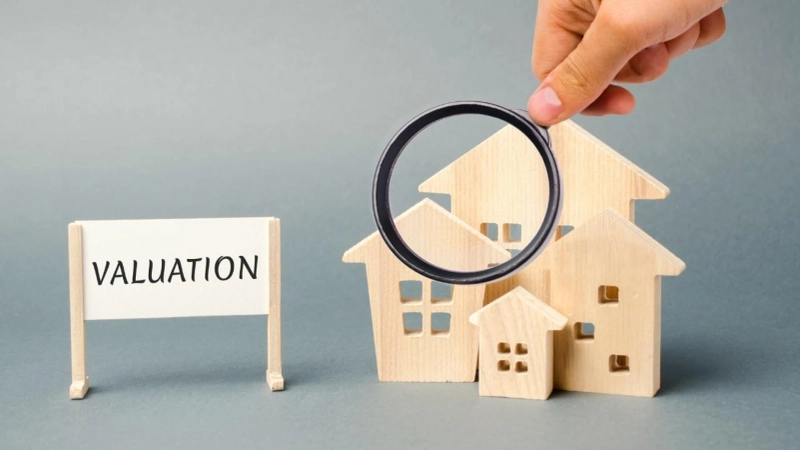Economic factors play a significant role in commercial appraisals, influencing property values and market conditions. Understanding these factors helps appraisers provide accurate valuations and supports informed decision-making for property owners and investors. This article explores the impact of economic factors on commercial appraisals and their implications for the real estate market.
Key Economic Factors Affecting Commercial Appraisals
Several key economic factors influence commercial appraisals, shaping property values and market trends.
Interest Rates: Interest rates have a direct impact on commercial property values. Higher interest rates increase borrowing costs, reducing demand for commercial properties and potentially lowering values. Conversely, lower interest rates make financing more affordable, boosting demand and property values.Inflation: Inflation affects the purchasing power of money and the cost of goods and services. High inflation can lead to increased construction and operating costs, impacting property values. However, inflation can also drive rental income and property values higher, especially in prime locations.Economic Growth: Economic growth, measured by Gross Domestic Product (GDP), influences demand for commercial properties. Strong economic growth leads to increased business activity and demand for office, retail, and industrial spaces, driving up property values.Employment Rates: Employment rates are closely linked to economic growth. High employment rates increase demand for commercial properties, as businesses expand and require more space. Conversely, high unemployment rates can reduce demand and lower property values.Consumer Confidence: Consumer confidence affects spending behavior and business investment. High consumer confidence leads to increased spending and business expansion, boosting demand for commercial properties. Low consumer confidence can reduce demand and negatively impact property values.Supply and Demand: The balance of supply and demand in the commercial real estate market directly affects property values. An oversupply of properties can lead to lower values, while limited supply and high demand drive up values.The Role of Economic Indicators in Commercial Appraisals
Economic indicators provide valuable insights into market conditions and trends, helping appraisers assess property values accurately.
Gross Domestic Product (GDP): GDP measures economic activity and growth. Strong GDP growth indicates a healthy economy, increasing demand for commercial properties and driving up values.Consumer Price Index (CPI): The CPI measures inflation and changes in the cost of living. Rising CPI indicates inflation, impacting construction and operating costs, and ultimately property values.Unemployment Rate: The unemployment rate reflects the health of the labor market. Low unemployment rates indicate a strong economy and high demand for commercial properties.Retail Sales: Retail sales data provides insights into consumer spending patterns. High retail sales indicate strong consumer demand, positively impacting retail property values.Building Permits: Building permit data indicates future supply in the commercial real estate market. An increase in building permits suggests upcoming construction, potentially affecting property values.Economic Cycles and Commercial Appraisals
Economic cycles, including periods of growth and recession, significantly impact commercial appraisals. Understanding these cycles helps appraisers provide accurate valuations.
Expansion: During economic expansion, demand for commercial properties increases, leading to higher values. Businesses expand, and consumer spending rises, driving up demand for office, retail, and industrial spaces.Peak: The peak of the economic cycle represents the highest point of economic activity. Property values are at their highest, but the market may become overheated, leading to potential corrections.Recession: During a recession, economic activity slows, and demand for commercial properties declines. Property values may decrease due to reduced business activity and consumer spending.Recovery: The recovery phase follows a recession, with economic activity gradually improving. Demand for commercial properties increases, leading to a gradual rise in property values.Implications for Property Owners and Investors
Understanding the impact of economic factors on commercial appraisals is crucial for property owners and investors. These insights support informed decision-making and strategic planning.
Investment Strategies: Knowledge of economic factors helps investors develop effective investment strategies, identifying opportunities and mitigating risks.Timing of Transactions: Understanding economic cycles assists in timing property transactions, maximizing returns by buying during downturns and selling during peaks.Risk Management: Awareness of economic factors supports risk management, allowing property owners to anticipate and respond to market changes.Financial Planning: Accurate appraisals based on economic factors support financial planning, helping property owners manage their investments and plan for future needs.Conclusion
Economic factors have a profound impact on commercial appraisals, influencing property values and market conditions. By understanding these factors, appraisers can provide accurate valuations, supporting informed decision-making for property owners and investors. Economic indicators, cycles, and trends offer valuable insights into the real estate market, guiding strategic planning and risk management. In the dynamic world of commercial real estate, staying informed about economic factors is essential for success.



